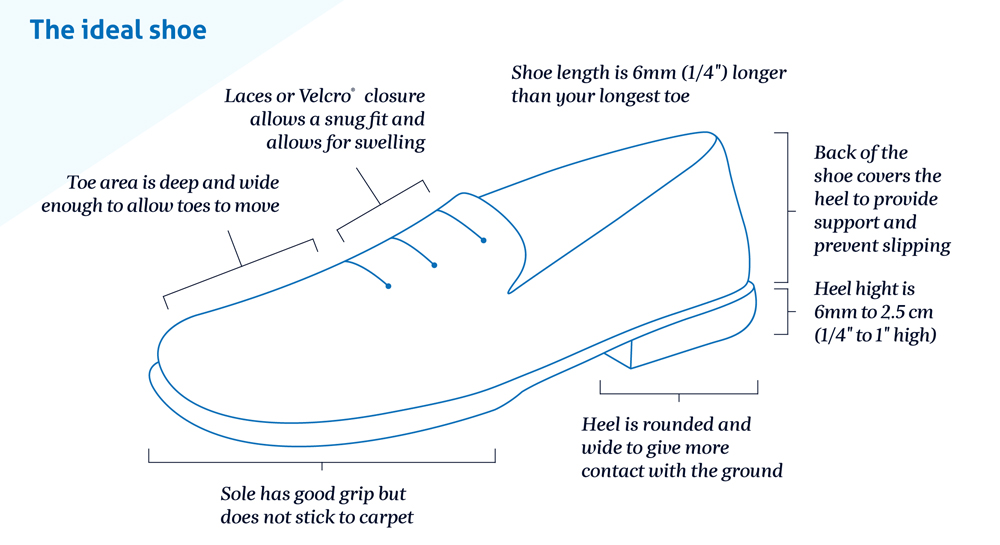Falls can happen to anyone, but as we age, we are more at risk. A serious fall can affect your quality of life. However, falls are preventable and are not a natural part of aging.
Finding Balance is an awareness campaign targeted for adults aged 55 and older. This campaign focuses on real-life strategies that adults can put into practice to prevent falls. The four key messages are:
Watch Your Step (click to expand) »
 Keep your home well-lit and free of clutter. Keep your home well-lit and free of clutter.- Be aware of uneven surfaces and icy conditions when walking.
- Have your vision checked every year.
- Wear supportive shoes to help keep balance.
- Slow down and take your time.
|
Speak Up About Dizziness (click to expand) »
Tell your health-care provider and take action.
- Have your blood pressure checked when you are lying down and standing up. You may start to feel dizzy if your blood pressure drops quickly when you stand up.
- After lying in bed or sitting in a chair be sure to clench your fists and circle your ankles ten times. Take your time and get up slowly.
- Tell your doctor if you feel dizzy or lightheaded. Medications can be one of the causes of dizziness.
- Drink fluids each day to avoid dehydration which may cause dizziness.
|
Check Your Medications (click to expand) »
Talk to your health-care provider..
- Be sure to use the same pharmacy for your prescriptions to stop harmful interactions.
- Review your medications with your health care provider or pharmacist each year.
- Medications that relax you, help you sleep, or improve your mood, can also increase your chances of falling.
- Don’t forget that over-the-counter pills, vitamins, and herbal supplements must also be considered when taken with your medications.
|
Keep Active (click to expand) »
Exercise for strength and balance.
- Regular exercise can help prevent a fall by building up your strength and improving balance.
- Ask your local physiotherapist or health-care provider about the best type of exercise program for you.
- Get advice from an occupational therapist about the best way to stay safe and keep active while doing everyday activities at home or in your community.
- Be active for 30 minutes a day.
|
Services related to this information:
- Contact your Public Health Nurse
- 811 HealthLine (Newfoundland & Labrador) – Call 811 or 1-888-709-2929 / TTY 1-888-709-3555
- Speak with your health-care provider.


 Keep your home well-lit and free of clutter.
Keep your home well-lit and free of clutter.